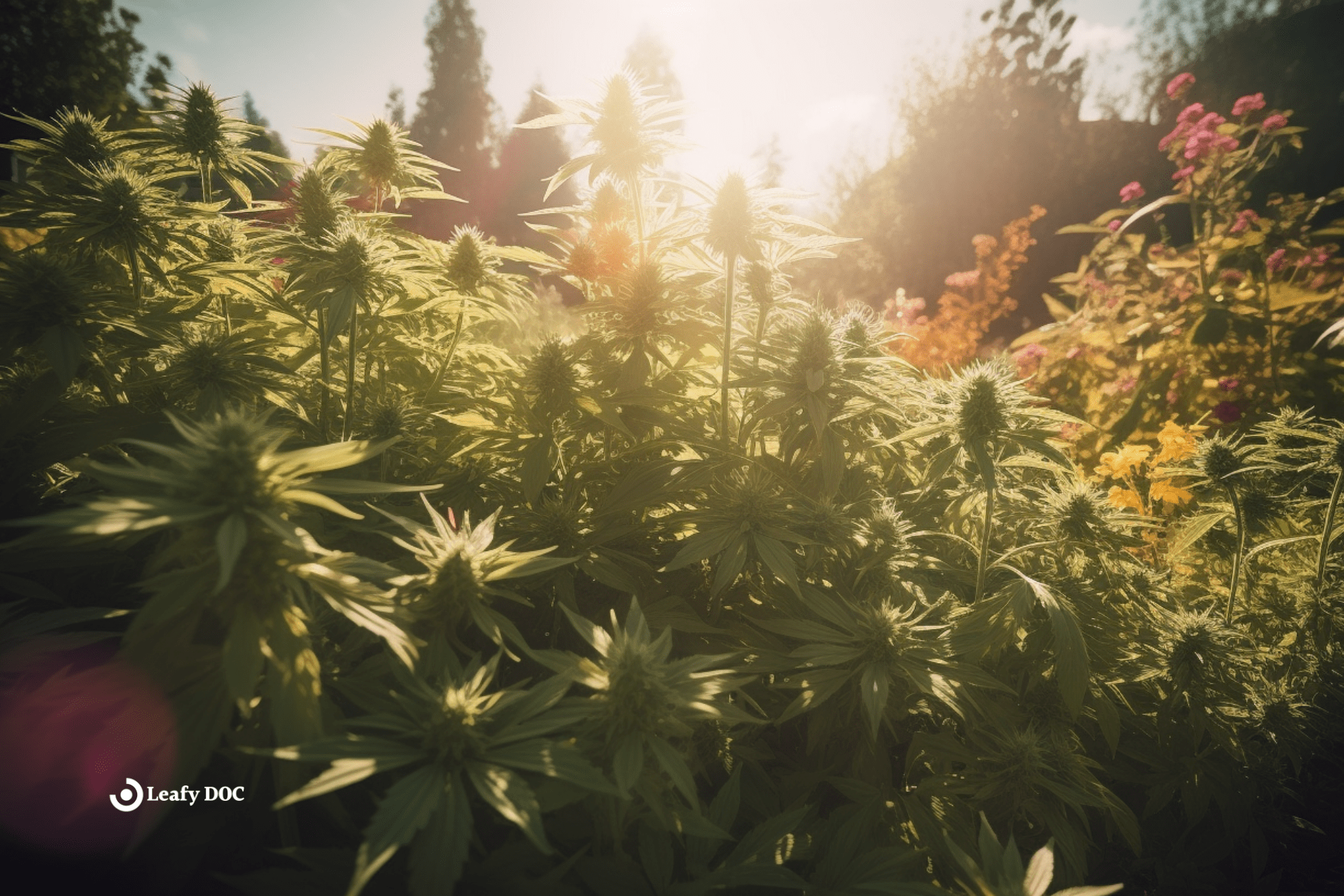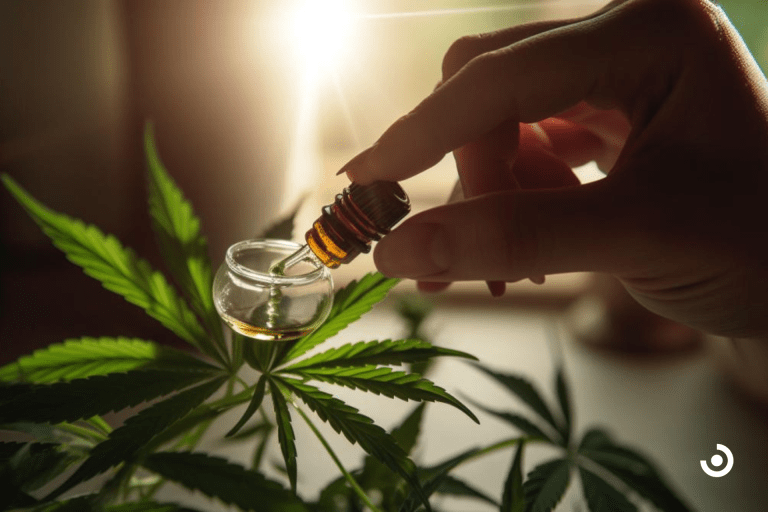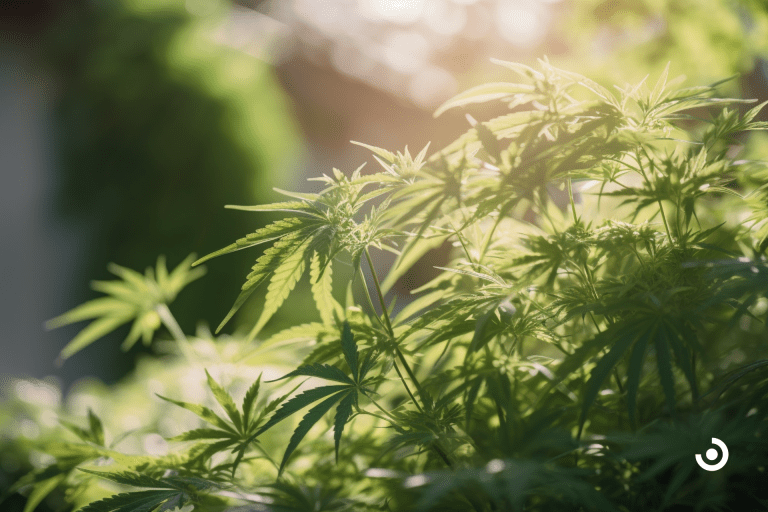The Comprehensive Guide To Veganic Weed
by Haley Mills · October 23, 2023
Learn how to grow your own veganic weed – organic and cruelty-free! Discover the ultimate guide to sustainable marijuana cultivation that’s good for you and the planet. Start growing today!

Veganic weed, or veganic cannabis, is a growing trend in the cultivation world. As more people embrace the vegan lifestyle, they seek plant-based alternatives for all aspects of their lives, including recreational activities. Veganic weed refers to cannabis grown using only vegan and organic methods, without any animal by-products or synthetic chemicals.
This comprehensive guide aims to explore the world of veganic weed, providing insights into its benefits, the difference between organic and veganic cultivation, and various growing methods and techniques. Whether you are a seasoned vegan or simply curious about this emerging trend, this guide will equip you with the knowledge and tools to confidently navigate the world of veganic weed.
With the demand for veganic products on the rise, it is essential to understand the difference between organic and veganic cultivation methods and the various techniques and products available. So, whether you are a novice grower or an experienced cultivator, this guide will provide you with the comprehensive information you need to embark on your journey into the world of veganic weed.
What is Veganic Weed?
Veganic weed refers to cannabis that is grown without the use of any animal-based products or by-products. This means no animal manure, bone meal, fish emulsion, or other animal-derived fertilizers or pesticides are used in the cultivation process. Instead, veganic growers rely on plant-based compost, cover crops, and other organic materials to nourish the soil and promote plant growth.
The veganic weed market has steadily grown in recent years, as more consumers are becoming aware of the environmental and ethical implications of traditional cannabis cultivation methods. Veganic cultivation is considered more sustainable and environmentally friendly because it reduces reliance on animal agriculture and minimizes the carbon footprint associated with animal-based fertilizers.
Additionally, veganic weed is often perceived to be of higher quality and taste, as it relies on natural and organic methods to enhance the plant’s terpene profile and overall flavor. This has increased demand for veganic weed in the market, with more growers and dispensaries catering to this niche market.
Benefits of Veganic Cultivation
By adopting a veganic cultivation approach, you can enjoy numerous benefits such as increased soil fertility and improved sustainability. Veganic cultivation uses only plant-based materials and organic methods to grow crops, including cannabis.
One of the key benefits of this approach is its positive impact on the environment. Unlike conventional cultivation methods that rely on synthetic fertilizers and pesticides, veganic cultivation promotes the use of natural and sustainable practices. This helps to reduce the release of harmful chemicals into the soil and water, contributing to the overall environmental sustainability of the cultivation process.
Consuming veganic weed also offers various health advantages. Since veganic cultivation avoids synthetic chemicals, the cannabis plants are free from harmful residues that can be present in conventionally grown cannabis. This means that veganic weed is less likely to contain traces of pesticides or other chemicals, making it a safer option for consumption.
Veganic cultivation prioritizes using organic and natural fertilizers, resulting in cannabis plants rich in essential nutrients. These nutrient-rich plants can then provide consumers with a more potent and flavorful experience, enhancing the overall quality of the weed.
Organic vs. Veganic: Understanding the Difference
Understanding the difference between organic and veganic is key to making informed choices about cultivating and consuming plant-based products. While both organic and vegan farming methods prioritize using natural inputs and avoiding synthetic chemicals, there are some key distinctions between the two.
Organic farming involves using natural fertilizers, such as compost and manure, and avoiding synthetic pesticides and genetically modified organisms (GMOs). However, organic farmers may still rely on animal-based inputs, such as bone meal or blood meal, to supplement the soil.
On the other hand, veganic farming takes organic principles a step further by eliminating all animal-derived inputs. Instead, vegan farmers use plant-based fertilizers, such as seaweed or vegetable compost, to nourish the soil.
In addition to the difference in inputs, vegan farming differs from conventional and hydroponic farming. Conventional farming relies heavily on synthetic pesticides and fertilizers, which can negatively impact the environment and human health. Hydroponic farming, conversely, involves growing plants in a soilless medium and providing nutrients directly through water. While hydroponic farming can be done organically, it may still use synthetic inputs.
Veganic farming avoids both synthetic inputs and animal-derived inputs, making it a more sustainable and ethical choice.
Veganic Growing Methods and Techniques
Veganic growing focuses on using only plant-based inputs and avoiding any animal-derived products. A critical aspect of veganic growing is choosing the right soil amendments.
Instead of using traditional fertilizers like bone meal or fish emulsion, veganic growers rely on plant-based alternatives such as composted vegetable matter, seaweed extracts, and soybean meal. These amendments provide essential nutrients to the plants while maintaining the veganic principles.
In addition to soil amendments, veganic growers also utilize veganic pest control methods. Instead of using chemical pesticides that can harm the environment and potentially leave residues on the final product, veganic growers employ natural strategies to prevent and manage pests. This can include companion planting, where certain plants are grown together to deter pests, or using organic insecticidal soaps and neem oil.
Tips for Choosing and Using Veganic Weed Products
When selecting and utilizing veganic cannabis products, it’s crucial to consider these helpful tips.
Firstly, it is vital to choose products that are labeled as veganic. This ensures that the cannabis has been grown using sustainable agriculture methods that do not involve animal byproducts or synthetic chemicals. Look for certifications or labels that indicate the product is veganic, such as the “Certified Veganic” seal.
In addition to the growing methods, consider the health benefits of veganic weed. Veganic cannabis is typically grown without synthetic fertilizers, pesticides, or herbicides. This means that the final product is free from potentially harmful chemicals that can be present in conventionally grown cannabis.
Frequently Asked Questions
Can veganic weed be grown indoors?
Yes, veganic weed can be grown indoors. The benefits of using veganic nutrients for indoor cannabis cultivation include healthier plants, improved taste, and reduced environmental impact. Tips for creating a veganic growing environment indoors include using vegan compost and organic pest control methods.
Are there any potential health risks associated with consuming veganic weed?
There are no known health risks associated with consuming veganic weed. However, consider the environmental impact of its cultivation and the ethical considerations of consuming products that align with vegan principles.
How does veganic weed compare potency and flavor to conventionally grown weed?
Regarding potency, veganic weed can be just as potent as conventionally grown weed, as the cultivation methods do not affect the THC levels. However, the flavor of veganic weed is often described as more natural and robust. In terms of cost, veganic weed may be slightly more expensive due to the additional labor and resources required for organic cultivation. However, the environmental impact of veganic weed cultivation is significantly lower, making it a more sustainable choice.
Can veganic weed be grown in hydroponic systems?
Yes, veganic weed can be grown in organic hydroponic systems. These sustainable indoor gardening methods provide a controlled environment for plants to thrive without animal-derived fertilizers or pesticides.
Are there any specific certifications or labels to look for when purchasing veganic weed products?
When purchasing veganic weed products, look for certifications such as USDA Organic, Veganic Agriculture Network, or Certified Vegan. These labels ensure that the products were produced without animal inputs and with minimal environmental impact. Additionally, consider buying from reputable sources that prioritize sustainability and transparency.
Last Updated: August 8, 2024
Get Approved for Your Medical Marijuana Card in Minutes!

Get Your Medical Card
Connect with a licensed physician online in minutes

Like This Article?
Share with your friends
Table of Contents
Keep Reading
-
Finding The Right Dosage: THC Vs CBD
Find the ideal THC vs CBD dosage for your ultimate cannabis experience! Learn the differences between these compounds and discover the perfect balance for your needs. Click here to find your perfect dosage now!
-
Can CBD Help with Pain Management?
As more and more research is released, CBD is looking like a promising option for pain management. From chronic pain to arthritis, CBD may be able to help.
-
Exploring The Use Of Medical Cannabis For Anxiety
Unlock the potential of medical cannabis for anxiety treatment and learn about its surprising benefits and risks. Click now to explore the groundbreaking revolution in anxiety management!



